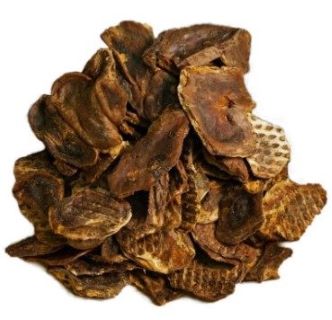

Kangaroo kidney is a nutritious addition to a dog’s diet, as it is rich in zinc and vitamin B3. However, it should be given in moderation due to its high purine content, which can cause bladder stones.
Kangaroo kidney is a low-fat source of protein and iron that supports a dog’s immune system and thyroid function. It also helps remove toxins and improve blood circulation. Additionally, it is hypoallergenic, making it a great option for dogs with protein allergies.
Kangaroo meat and organs can carry parasites, bacteria, and diseases. Kangaroo kidney is also high in purines, which can lead to elevated uric acid levels and bladder stone formation, particularly in Dalmatians.
It is important to source kangaroo kidney and other organ meat from reliable suppliers. Raw feeders can give the kidney to their dogs without seasoning, while cooked kidney can be cut into bite-sized pieces and given in moderation. Dehydrated kangaroo kidney treats with no additives can also be given occasionally. It is recommended that organ meat should make up no more than 5% of a dog’s total diet.
Kangaroo kidney, also known as roo kidney, is a nutritious food that provides dogs with a low-fat source of protein, iron, zinc, and vitamin B3. It also supports their immune system, thyroid function, and helps with toxin removal and blood circulation. Kangaroo kidney is hypoallergenic, making it an excellent option for dogs with protein allergies. However, it should be consumed in moderation due to its high purine content, which can result in bladder stones.
It is essential to purchase kangaroo kidney from trusted suppliers as it may carry parasites, bacteria, and diseases. While raw feeding can be done with no seasoning, cooked kangaroo kidney can also be given in small pieces. Dehydrated kangaroo kidney treats with no additives can also be a healthy option to add to their diet. It is recommended to feed dogs no more than 5% of their overall diet in organ meat.
For those who can't access kangaroo kidney, chicken liver and beef kidney can be used as a substitute.
Are you curious about kangaroo kidney's taste, or have you tried it? Let me know your pet's experience with this food in the comments below. Remember always to consult with your veterinarian before making any significant changes to your pet's diet.